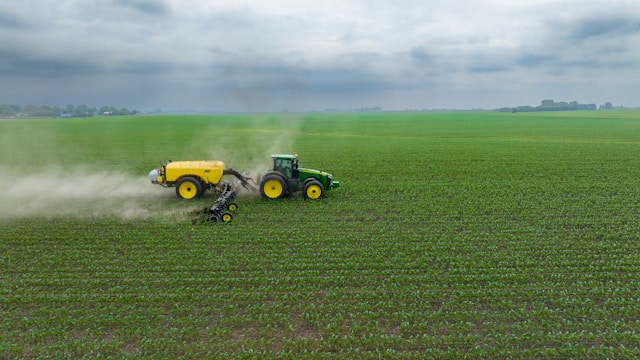Technology today has become a necessity across many industries and is revolutionizing practices and making processes run quicker and more efficient. In a world with a growing population and a rising demand for more food production, technological innovations are a necessity in the agriculture industry. It is estimated that food production needs to increase 60 percent by 2050 in order to feed the rising world population of 9.3 billion people. Agriculture experts recognize this enormous need and work to bring various technologies to market. Agri-tech is an overarching term that covers many technologies such as sensors, machinery, devices, information technology and more. Let’s explore some of the agri-tech innovations that are shaping the future of farming and food production.
Robotic Systems
Robotic systems in agriculture make on-farm practices more efficient, profitable, and safe. From planting, harvesting, weeding, milking and more, robotic technologies save farmers time and money. Labor shortages in agriculture have become a major issue for rural farmers unable to find laborers. Implementing robotic systems will help farmers maintain a high level of food production despite these labor shortages. Agriculture experts note that robotics in agriculture can help bridge the gap in agriculture labor. Robotic systems on farms also allow farmers to manage natural resources more efficiently by controlling the amount of water as well as fertilizer. This reduces cost for farmers and contributes positively to the environment by reducing waste.
Biologicals
To define biologicals very simply, they are naturally derived products that assist farmers with pest management in a more ecologically friendly way while increasing yields. The market for biologicals is expected to reach 6.8 billion by 2028 showing its relevance among agriculture technologies. Agriculture experts explain other benefits of biological products including stimulating, feeding, shifting and leveraging the microbiome to provide supplemental nitrogen to improve phosphate availability. Biological use is on the rise in the agri-tech world and innovation with these products will continue to impact future farming and production.
Artificial Intelligence
Artificial Intelligence (AI) has received a lot of attention for the ways it is and can transform industries. As experts work to increase profitability and productivity in agriculture, technologies that incorporate AI are emerging. AI on farms has many different applications, but it generally assists in automating farm management processes and utilizing algorithms and machine learning. For example, AI allows for irrigation scheduling as well as analyzing data on temperature and humidity. This information allows farmers to make informed decisions about their crops as well as act preventatively based on the data.
Final Thoughts
Developing, investing and implementing technologies is no easy task, but it is paramount to the future of farming and food production. Agriculture technology is essential to increasing food production and supporting a growing population. Robotic systems, biologicals and AI only scratch the surface of the agriculture technologies being implemented and developed today. Innovators, researchers and agriculture experts must work together to bring technologies to market as well as make them accessible to farmers and ranchers worldwide.











Leave a Reply